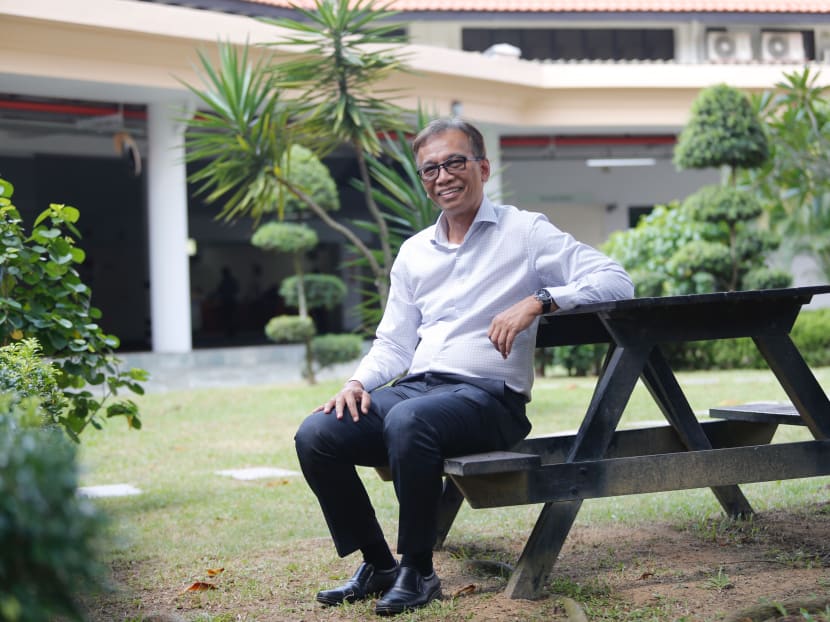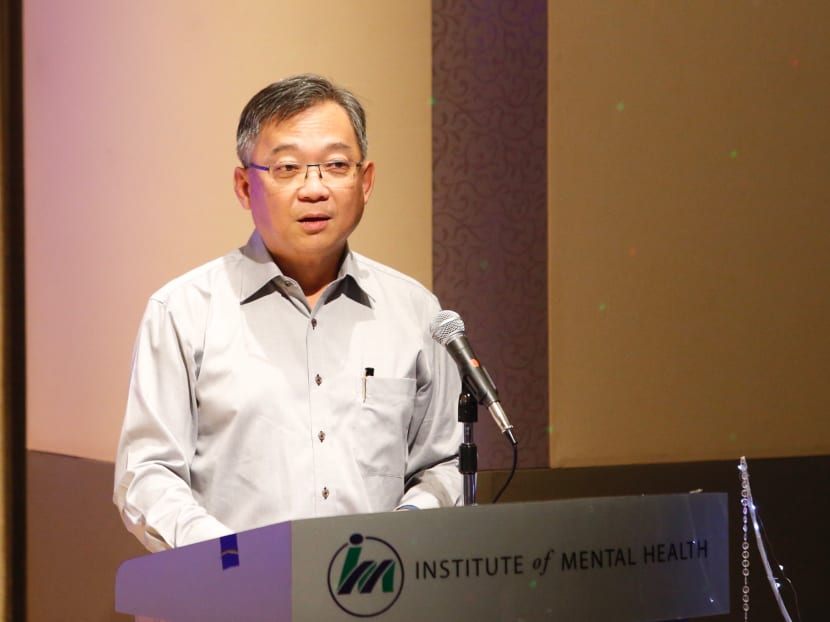More IMH nurses to reach out to patients in community, as institute moves away from hospital-centric model
SINGAPORE — The Institute of Mental Health (IMH) plans to bump up the number of its nurses doing community-based work from 10 per cent to up to 60 per cent as part of its push to rehabilitate patients, and send out the message that recovering from mental illness is possible.

Nurse clinician Salleh Mohamed, 63, is part of a group of 22 community psychiatric nurses from the IMH’s Community Mental Health Team, which has been providing home-based psycho-social rehabilitation to patients.
SINGAPORE — The Institute of Mental Health (IMH) plans to bump up the number of its nurses doing community-based work from 10 per cent to up to 60 per cent as part of its push to rehabilitate patients, and send out the message that recovering from mental illness is possible.
As part of IMH's shift from a hospital-centric model of care to a more community-based one, more nurses will head out to touch base with discharged patients, help them manage their conditions, and eventually reduce readmissions.
IMH chief nurse Samantha Ong told TODAY: "Almost 90 per cent of my nurses are taking care of patients in the inpatient side. Only 10 per cent are doing community (outreach). So as time goes by, we want to switch that.
"We are talking about having 50 to 60 per cent of the nurses taking care of the community, while only 40 per cent take care of the patients in the inpatient ward."
The move will mark another leap from the days of the "custodial care model" at the former Woodbridge Hospital to the current recovery-focused care model, said Ms Ong on the sidelines of the IMH's Nurses' Day event on Friday (Aug 3).
REDUCING READMISSIONS
Nurses today "go beyond looking after patients' basic needs" by providing psychoeducation — information and education for those seeking or receiving mental health services — to help patients manage their own conditions, and prepare them for discharge, among other things.
But more can be done, said Ms Ong, who began her career as a staff nurse with IMH in 1986. For instance, inpatient nurses could go out to visit patients at home after they are discharged so that they are able to follow up with the same patients they saw in the ward.
Noting that the chief issue they face is patient non-compliance, she said: "If patients keep coming back and getting readmitted, I really do not have the manpower and resources to say that I want to increase another 50 community psychiatric nurses."
The solution is to keep the patient in the community, as not having them readmitted will place less strain on inpatient needs, she added.
IMH currently employs 1,068 nurses, who make up about 40 per cent of its staff strength. They are the largest workforce in the hospital, which has a total of 1,450 doctors, allied health workers, administrative or clerical workers, and ancillary staff.
BE A FRIEND
Nurse clinician Salleh Mohamed, 63, is part of a group of 22 community psychiatric nurses from the IMH's Community Mental Health Team, which has been providing home-based psycho-social rehabilitation to patients. He keeps tabs on some 40 patients by visiting them at their homes once or twice a month.
Mr Salleh's work scope as a community psychiatric nurse — a role that has been in effect since 1988 — provides a glimpse into what others nurses could be doing more of in the future with IMH's push to a community-based model of care.
Building trust and rapport first as a friend of the patients, he counsels them and helps allay their fears and concerns about taking their medication, or returning to the hospital for follow-up visits.
One patient he helped was a 57-year-old man with schizophrenia who suffered from frequent relapses and readmissions for over two decades due to his reluctance to take his medicine regularly, and poor insight into his illness.
When Mr Salleh first met him in 2016, it took three visits to build trust as he talked to him "more as a friend rather than a patient". He found out that the patient had not attended follow-up appointments as he was afraid of the prospect of readmission after he was warded once for two weeks. He refused to take his medication as he used his religion to justify why he did not suffer from any mental illness.

After working through these issues, the patient is now taking his medication regularly and goes for his follow-up appointments, noted Health Minister Gan Kim Yong in his speech at IMH's Nurses' Day, as he cited this as an example of how nurses play an important role in the community.
Mr Salleh even referred the man, who was unemployed for more than 20 years due to his illness, to a medical social worker who then liaised with the Ministry of Social and Family Development's Social Service Office to get him financial assistance, Mr Gan added.
Mr Salleh told TODAY that his duties as a last-mile psychiatric nurse — which he has done since 2001 — is fulfilling as he can "really see patients recover". He has even forked out his own money at times to buy cooking oil, rice, sugar, and other basic necessities when his patients do not have enough to eat.
STREAMLINING PROCESSES
In his speech on Friday, Mr Gan said that IMH has embarked on several projects — some involving the use of technology — to streamline processes and provide better continuity of care.
One such example is Tele-Derm, which allows trained IMH nurses to capture images of skin lesions and send them to National Skin Centre doctors who can review the conditions remotely. It reduces trips to the skin centre, cutting down on the need for nurses to spend time accompanying patients for off-site visits, in turn allowing them to devote more attention to direct patient care.
Mr Gan also pointed out that IMH is moving towards a "nursing shared governance model" that encourages more nurses who provide direct patient care to take part in decision-making processes in nursing care. That way, "they are empowered and accountable for clinical practice," said the minister.








